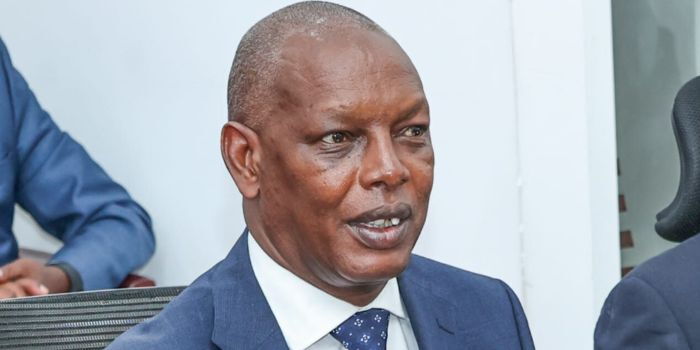Kenyans could be forced to pay more for meat and dairy products if farmers do not heed the call for vaccination the government has revealed.
According to Agriculture Cabinet Secretary Dr Andrew Karanja, farmers who will not comply with the vaccination directive announced last month risk losing their livestock to diseases. This could precipitate a shortage of the crucial products.
Speaking during a campaign drive for the vaccination on Friday, December 13, the CS outlined four risks the country, especially livestock farmers might face if they do not allow their livestock to be vaccinated.
CS Karanja revealed that the vaccination drive is one of the numerous strategies and interventions the government is taking to propel the agriculture sector.
Livestock breeders showcase their animals at Gicheha Farm in Nakuru County in 2018
farmingKenya / Facebook
According to the CS, if the livestock is not vaccinated, the farmers will face a loss of income and the livestock will face fatalities.
Other risks that the country might face if the farmers do not comply include food shortages and a decline in international trade.
“We are addressing threats such as Foot and Mouth Disease (FMD) and Peste des Petits Ruminants (PPR) through a planned mass vaccination campaign. This ensures safe meat, milk, and other products while adhering to global food safety standards,” Karanja noted.
“The absence of such interventions could lead to livestock fatalities, food shortages, loss of income for farmers, and a decline in international trade due to non-compliance with global food safety standards,” the CS continued.
According to the CS, the move to vaccinate the livestock is part of compliance with global food safety standards.
He further assered that the government is augmenting livestock productivity through increased forage and feed production, improved breeding programs, and expanded livestock insurance.
The move by the government to vaccinate 22 million heads of cattle and 50 million sheep and goats to combat diseases. This has sparked controversy and debate, forcing the Head of State to hit back at critics.
While the government notes that the move is safe and necessary, other leaders, stakeholders, and Kenyans have rejected the drive, terming it as malicious.
Speaking on Wednesday, President William Ruto condemned those rejecting the drive, calling them stupid.
“Anybody opposing the vaccination of diseases among our livestock is mad, unreasonable, and possibly stupid; or they don’t have cattle. If you don’t have cattle, shut up,” the agitated President Ruto said.
Wiper leader Kalonzo Musyoka claimed that the nationwide vaccination program is a ploy by the government to introduce a genetically modified approach to harm Kenyans.
Other leaders who have called out the government on the matter include DAP-K party leader Eugene Wamalwa and Jubilee Secretary-General Jeremiah Kioni.
President William Ruto during the 24th Ordinary Summit of East African Heads of State Summit on Friday, November 29, 2024 in Arusha, Tanzania
Photo
PCS


